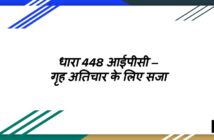As of January 2020, consumer spending in India amounted to approximately INR 21.6 trillion. With the current growth rate, India will become the third-largest consumer market after the US and China. This figure is enormous, and the upcoming number will be even more significant. This level of consumption requires an inclusive and responsible environment to keep the practices in check. Luckily, we have just the institution for the same, the consumer court. Unfortunately, not many consumers are aware of the redressal for protection against unfair practices. A majority of people are not even clear of their rights as consumers, and the fear of protracted litigation prevents them from taking any action. Having said that, the consumer court provides relief to both parties to maintain fair practices. So, the verdict goes in favour of the consumer if they have proper proof of documentation.
In this post, we will cover everything you need to know about the consumer forums, and how to approach them.
Consumer Protection Act, 1986
The consumer movement was first conceived in the 60s as a result of protests against food shortage, black marketing, adulteration, hoarding, and other unfair trading practices. The success of this movement gave rise to the enactment of the Consumer Protection Act of 1986. The act provides a faster and hassle-free remedy for consumer grievances and conflicts. It promotes the interests of consumers against trading malpractices. Under this act, the consumer does not have to pay substantial court fees and also saves time on rigorous trials of a regular courtroom. The complaints lodged by the consumers are heard by the consumer forums that award compensation for the hardships faced if the seller is proven guilty. It is important to note that the act applies to all the goods and services in all sectors that are consumed for personal use only. There is no redressal for products used commercially.
Basic Consumer Rights
In India, the consumer courts have provided certain rights to the users. Let’s take a quick look at them.
Safety:
It is the right to be protected against products and services that are hazardous in nature and a threat to life and property.
Information:
The consumers have the right to be informed of everything about the goods and services. These include the quality, standard, pricing, manufacturing, and expiry timeline.
Choice:
The consumers have a right to purchase the products of their choice, even at competitive pricing, with no scrutiny whatsoever.
To Be Heard:
The consumers have a right to be included and heard during all the decision making steps at the forum. They are assured of proper due diligence and fair compensation.
Seeking Redressal:
The consumers have a right to seek redressal and fair compensation against unjust trade practices.
Process of filing a disputes
Now that we are aware of the fundamental consumer rights, let’s go through the process of filing a dispute in the consumer forums. Based on the amount involved, you should lodge your complaint at the appropriate consumer forum.
District Consumer Disputes Redressal Commission (DCDRC)
When the claimed amount is up to INR 20 Lakhs, file a complaint with the DCDRC. There is a separate fee for the disputed amounts categorized into four brackets, as you will see in the below section.
Fee Structure:
For claims up to INR 1 lakh = INR 100
For claims of INR 1 lakh to INR 5 lakhs = INR 200
For claims of INR 5 lakh to INR 10 lakhs = INR 400
For claims of INR 10 lakh to INR 20 lakhs = INR 500
State Consumer Disputes Redressal Commission (SCDRC)
For the claimed amount in the range of INR 20 Lakhs to INR 1 Crore, the SCDRC handles the cases and also has appellate jurisdiction over the district forum.
Fee Structure:
For claims of INR 20 lakh to INR 50 lakhs = INR 2000
For claims of INR 50 lakh to INR 1Crore = INR 4000
National Consumer Disputes Redressal Commission (NCDRC)
For claims over INR 1 crore, the NCDRC works and has the highest appellate in the consumer court hierarchy.
Fee Structure:
For claims exceeding INR 1 crore = INR 5000
Now that the Consumer Protection Act, 2019, has come into existence, the district forum can handle claims up to INR 1 Crore. And, for the pecuniary relief exceeding this, consumers can appeal to the State and National Consumer forums. However, the implementation of the new act is still a work in progress.
Filing a Complaint
Before filing a complaint, the consumer must send a notice to the seller asking to rectify their mistakes and offer compensation for the hardships. Ideally, the notice should have a timeframe of one month. Make sure that you send it to the nearest convenient address. It helps to file the complaint at the nearest available consumer forum if it does come to that situation. Furthermore, the complaint must be filed within two years of the purchase. If you have reasonable causes for delay in filing the complaint, you can request the forum to consider it as an excuse.
Procedure for district forum
While State, National, and District forums have their own sets of rules when you file a complaint, there is no distinction. Let’s take a look at the procedure for the district forum.
- The complaint must be arranged in a particular order with the pages marked and numbered accordingly.
- Include an index for all documents with their respective page numbers
- In case of a delay, add an application for condonation, attested by a notary public.
- The complaint should have all the grievance details, a brief on the claimed relief that should include the legal costs, interests, damages.
- The complainant should sign these documents.
- Involving a lawyer is optional.
- You should also include an affidavit that reads the contents of the complaint are true.
- Keep copies of all the documents you deem necessary to rely on your complaint.
- You will need to submit one original and two xerox copies of all the required documents. When the complaint is officially registered, you will have to submit additional copies amounting to the number of parties involved in the matter.
- You have to file the complaint at the forum office personally. If you choose to engage a lawyer, you will require an authorized “Vakalatnama”.
- The office will set a date for admission on which you or your advocate will have to appear to explain the grounds of your complaint.
- When the complaint is accepted, the forum will send copies to the respondents along with a notice period.
Consumer Protection Act, 2019
Apart from the new pecuniary jurisdiction, the Consumer Protection Act, 2019 expands the definition of a consumer and offers more effective administration. With the advancing digitization, the era of e-commerce is blooming at its best. Such growth demands an advanced consumer protection law. The act of 2019 came in at the right time.
As per the new definition, a consumer is anyone who buys goods or services through online/offline transactions, telemarketing, direct selling, or via any other electronic means. And, all the consumers are entitled to protection under the new act. The new act gives the flexibility of filing the complaints online with the jurisdictional forum located near their residence and workplace. The new act has also broadened the penalties for misleading advertisements and unfair trade practices. Furthermore, the product aggregators and service providers will also be held liable in case of a legal complaint. The government is setting up rules and devising an authority to implement the new act in the next couple of months.

